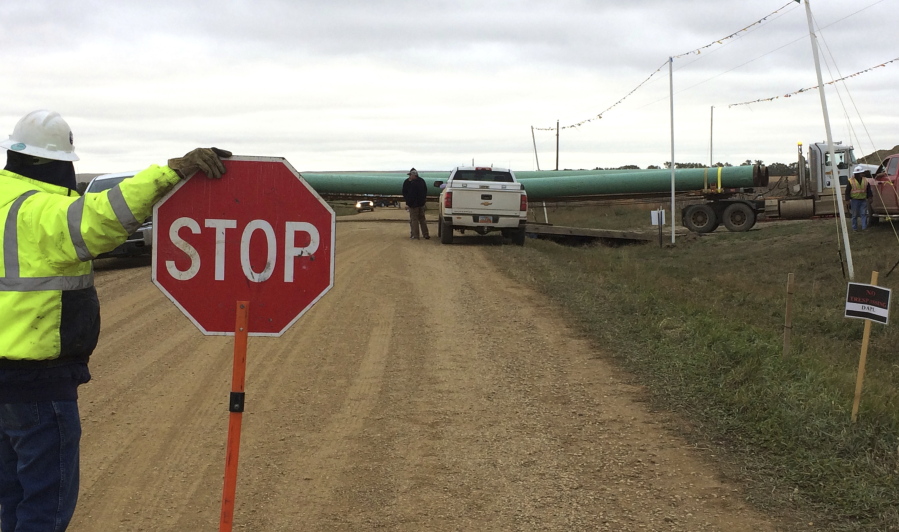ST. ANTHONY, N.D. — Construction on the four-state Dakota Access oil pipeline resumed Tuesday on private land in North Dakota that’s near a camp where thousands of protesters supporting tribal rights have gathered for months.
In turn, protesters said they’re discussing nonviolent opposition measures, including chaining themselves to equipment. And nine people were arrested Tuesday attempting to shut down pipelines in other states as a show of solidarity with the Dakota Access protesters.
Texas-based Energy Transfer Partners resumed digging trenches and laying pipe, Morton County Sheriff’s Office spokesman Rob Keller said, a move that comes in light of Sunday’s federal appeals court ruling that allowed construction to resume within 20 miles of Lake Oahe. That Missouri River reservoir is the water supply for the Standing Rock Sioux Tribe’s reservation.
“We reiterate our commitment to protect cultural resources, the environment and public safety,” the company said in a statement earlier Tuesday. The $3.8 billion, 1,200-mile pipeline from North Dakota to Illinois is otherwise largely complete.
The work area is a few miles from two protester camps, where scores of people have gathered in recent months and say they intend to stay through the winter.
Energy Transfer Partners still needs approval from the U.S. Army Corps of Engineers to work on a separate parcel of federal land bordering and under Lake Oahe, which the agency manages. The Corps said Monday it was not ready to give that approval because it is still reviewing whether reforms are needed in the way tribal views are considered for such projects.
The Standing Rock Sioux wants construction halted because of concerns about potential contamination of its water supply and says the pipeline will encroach on tribal burial sites and other cultural artifacts.
A state archaeologist’s inspection found no such artifacts on the private land where construction will resume. The tribe disputes that, and is still appealing a lower-court ruling from September that allowed work on the entire pipeline to proceed.
Protesters will discuss nonviolent measures to oppose the resumption of construction, camp spokesman Cody Hall said Tuesday. Methods might include chaining themselves to equipment, as they have done in the past, but nothing had been decided early Tuesday, he said.
“The people are going to stay vigilant. They’re going to fight this pipeline to the very end,” he said.



